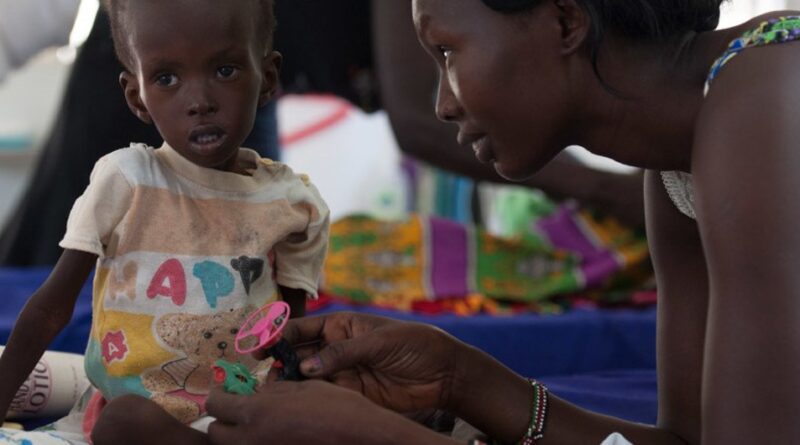UNICEF: Over 2 Million Nigerian Kids Severely Malnourished
The United Nations Children’s Fund (UNICEF) has raised serious concerns about Nigeria’s child nutrition crisis, revealing that the country bears the highest burden of malnourished children in Africa and ranks second globally for the number of stunted children.
According to the agency, an estimated two million Nigerian children are currently suffering from severe acute malnutrition (SAM), yet only 20 per cent of those affected are receiving life-saving treatment.
In a report published on its official website, UNICEF highlighted that 32 per cent of children under five in Nigeria are stunted, a condition caused by chronic malnutrition that severely hinders growth and cognitive development.
The crisis also extends to women, with seven per cent of Nigerian women of reproductive age suffering from acute malnutrition, a condition that poses risks for both maternal and child health.
ALSO READ: Oyo Police Disburses ₦20.12bn To Families Of Fallen Officers
“Malnutrition contributes directly or indirectly to approximately 45 per cent of all deaths in children under five,” UNICEF noted, citing poor dietary diversity and inadequate infant feeding practices as key contributors. Currently, only 17 per cent of infants in Nigeria are exclusively breastfed for the recommended first six months of life. Additionally, merely 18 per cent of children aged six to 23 months receive a minimum acceptable diet.
UNICEF pointed out that northern Nigeria remains the most affected region, with both stunting and wasting, two critical forms of malnutrition, rampant among children.
Beyond immediate health consequences, the report warned of long-term national impacts, stating, “Stunting not only increases the risk of child mortality, it is also associated with impaired cognitive development, poor educational outcomes, and reduced productivity in adulthood.” The resulting economic loss is estimated to cost the country up to 11 per cent of its Gross Domestic Product (GDP).
To combat the growing crisis, UNICEF emphasised its commitment to expanding access to quality nutrition services, particularly for women, children, and adolescents in marginalised communities and during emergencies.
The report comes amid rising concern about broader health challenges in the country, including a resurgence of polio in Lagos, prompting fresh calls for comprehensive public health interventions.
Content Credit| Oyedepo Oluwafifedoyinsola
Image Credit| United Nations news.ng




